
 Shutterstock
Shutterstock
German Shepherds and Pit Bulls are two widely admired breeds known for their loyalty, intelligence, and physical strength. Yet, beneath these similarities lie significant differences that make each breed unique. German Shepherds often excel in working roles due to their focus and versatility, while Pit Bulls are celebrated for their affectionate nature and resilience. Both breeds have temperaments and strengths, which can influence their suitability for different families and environments. Understanding these differences can help potential owners make a well-informed decision and develop a deeper appreciation for both breeds.
Physical Appearance
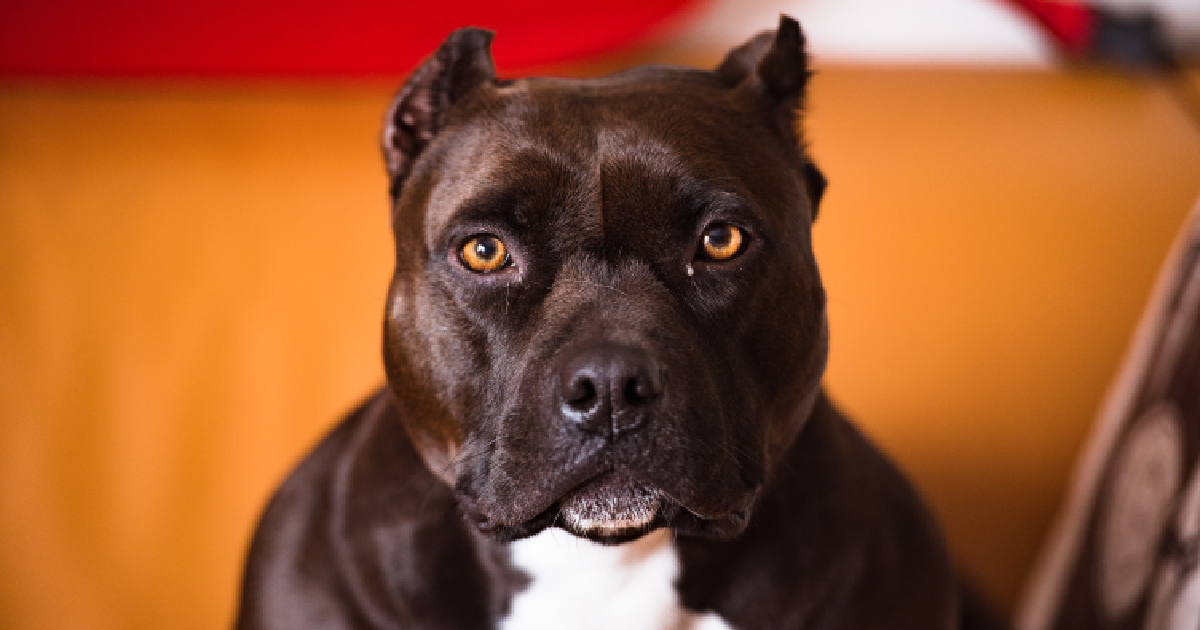 Shutterstock
Shutterstock
One of the most noticeable differences between German Shepherds and Pit Bulls is their physical appearance. German Shepherds are larger, standing around 22 to 26 inches tall at the shoulder and weighing between 50 to 90 pounds. They have a sleek, athletic build with a long, double-layered coat that comes in colours like black and tan, sable, and even solid black. Pit Bulls, on the other hand, are more compact and muscular, standing about 17 to 21 inches tall and weighing between 30 to 60 pounds. Their short, smooth coat comes in a wide range of colours and patterns. The lean build of the German Shepherd contrasts sharply with the sturdy, muscular frame of the Pit Bull.
Temperament
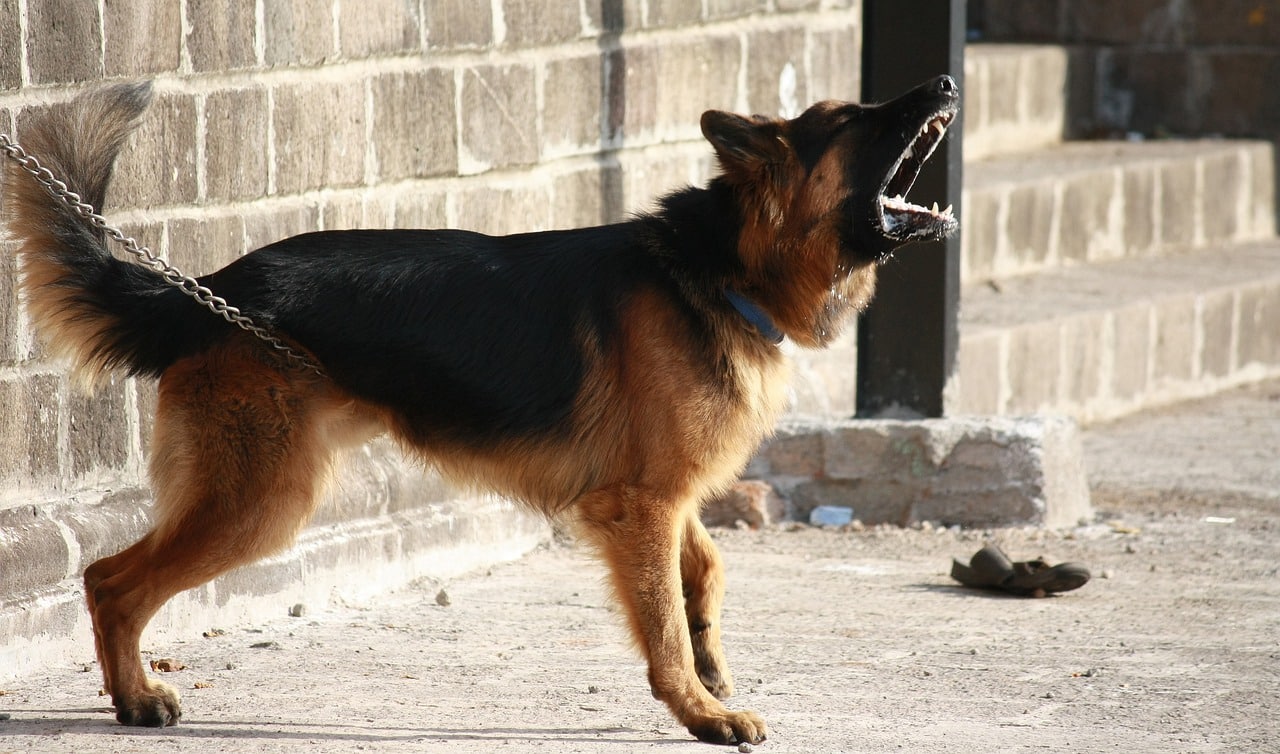 Shutterstock
Shutterstock
German Shepherds and Pit Bulls differ significantly in temperament. German Shepherds are known for their intelligence, loyalty, and protective instincts, often being reserved with strangers but very affectionate with their families. They thrive in environments where they have a job to do, such as guarding or working alongside humans. Pit Bulls, however, are typically more social and friendly, often referred to as “nanny dogs” due to their affectionate nature with children. While both breeds are incredibly loyal, German Shepherds tend to have a more serious demeanor, whereas Pit Bulls are known for their playful, sometimes goofy nature.
Energy Levels
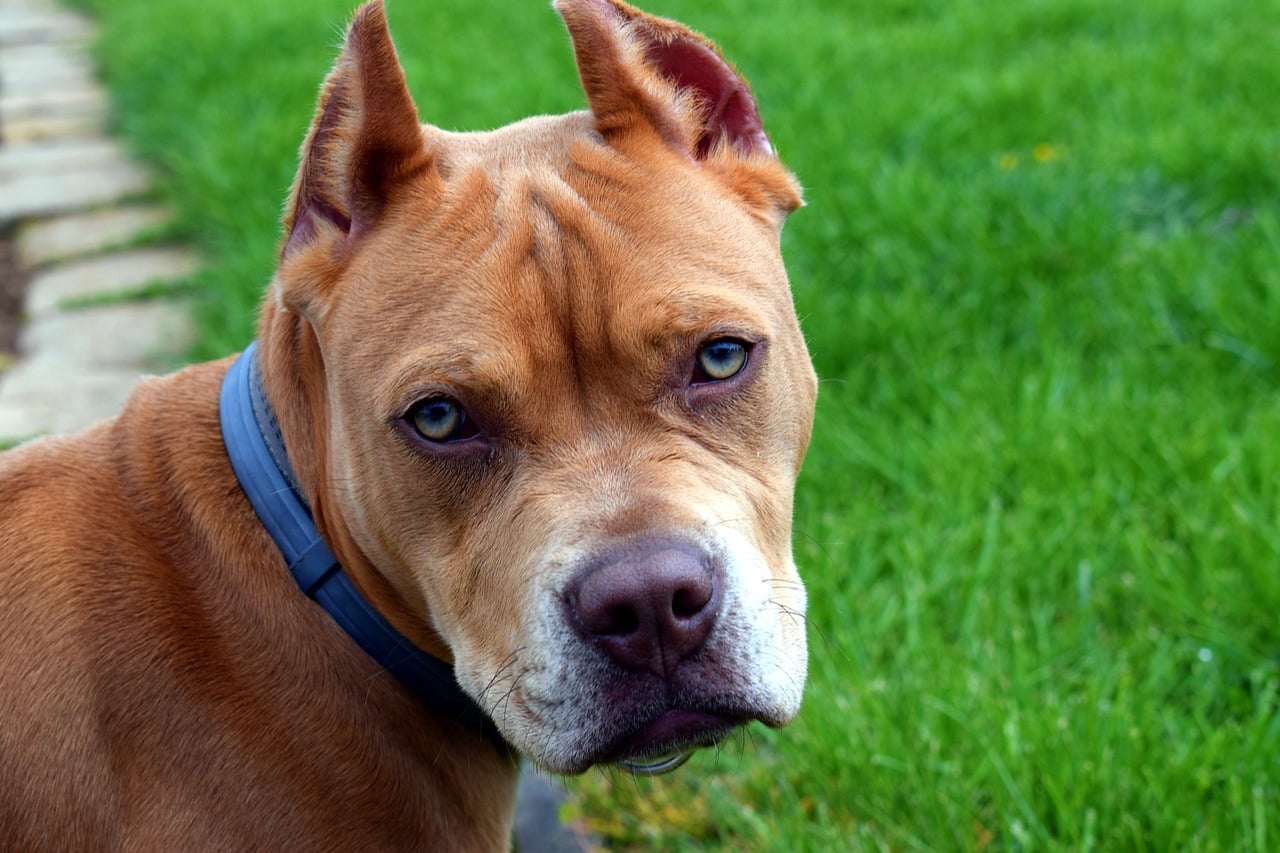 Shutterstock
Shutterstock
Both breeds have high energy levels, but they express them differently. German Shepherds are known for their work-driven energy, meaning they need mental challenges and physical activity to stay happy. They excel in activities like obedience, tracking, and agility. Pit Bulls also have high energy, but they often display it in bursts of enthusiasm, enjoying playtime and exercise without necessarily needing as much mental stimulation. A German Shepherd is likely to want to solve a puzzle toy, while a Pit Bull might want to zoom around the yard, burning off energy with sheer joy.
Trainability
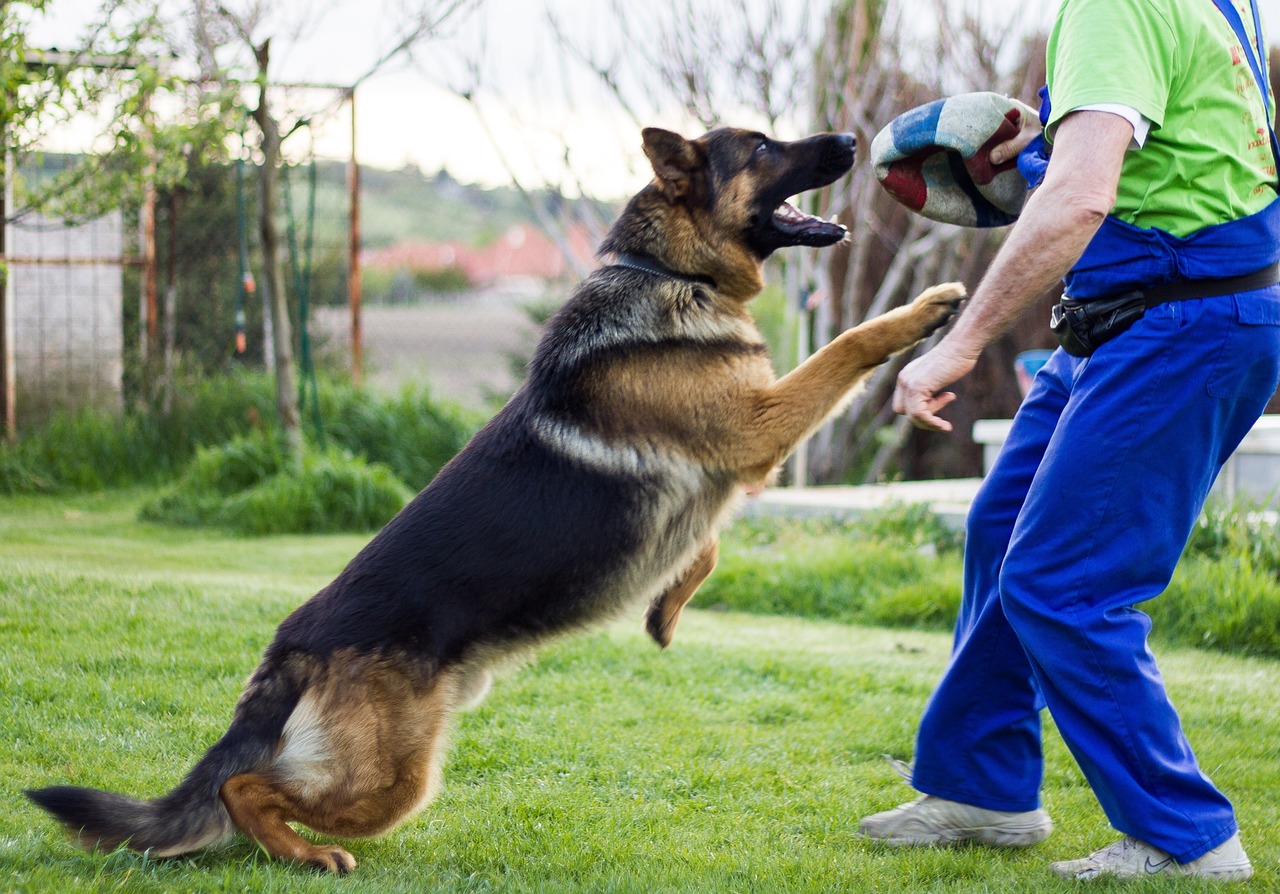 Shutterstock
Shutterstock
German Shepherds are often regarded as one of the most trainable breeds due to their eagerness to please and high intelligence. They are commonly used in police, military, and service dog roles because of their ability to learn commands quickly and perform complex tasks. Pit Bulls, while also intelligent, can be more stubborn and independent-minded. They respond best to training methods that incorporate positive reinforcement and play rather than a rigid structure. While both breeds can excel with the right trainer, German Shepherds generally thrive on routine, whereas Pit Bulls might need a bit more patience.
Grooming Needs
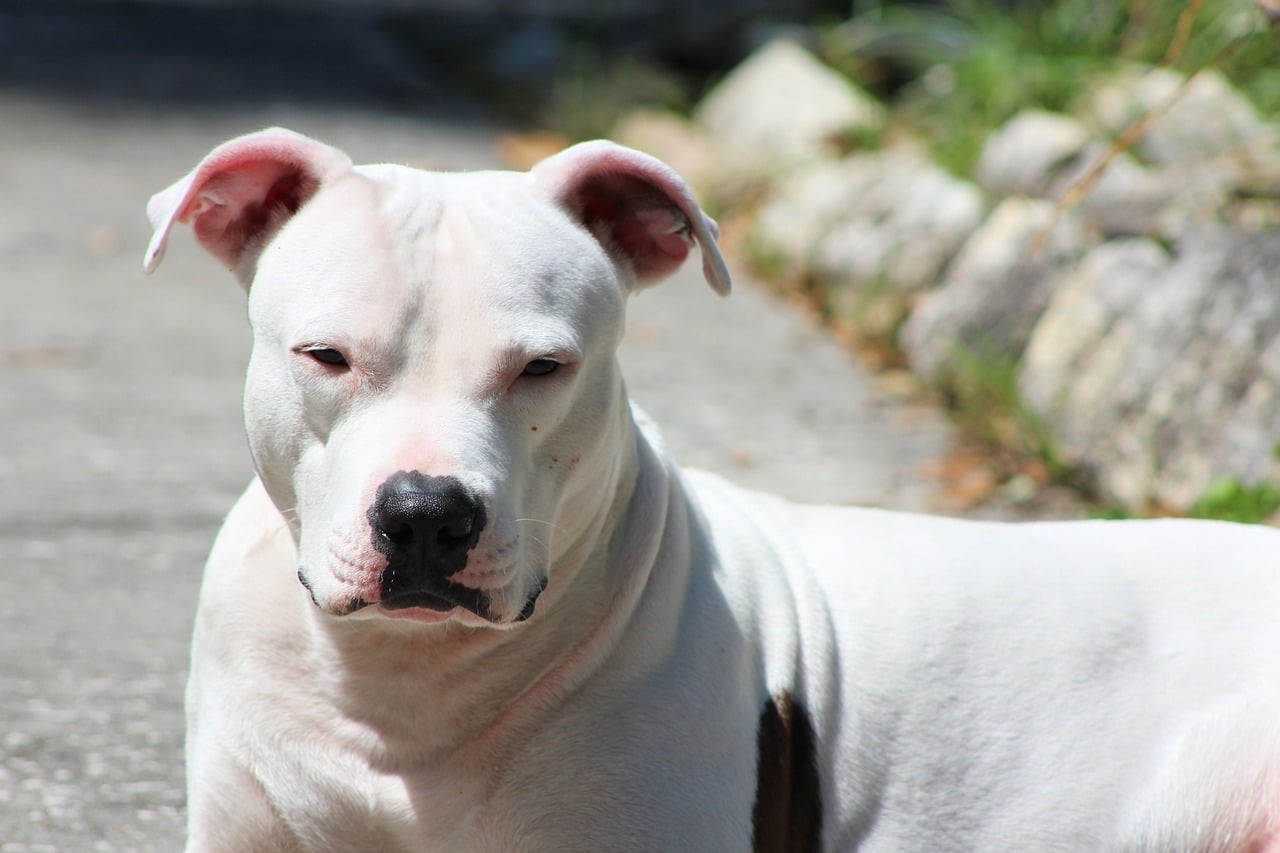 Shutterstock
Shutterstock
When it comes to grooming, German Shepherds and Pit Bulls have different requirements. German Shepherds have a double coat that sheds year-round, with more intense shedding during seasonal changes. Regular brushing is essential to manage their shedding and keep their coat healthy. Pit Bulls, by contrast, have a short, smooth coat that requires much less maintenance. They shed as well, but not nearly as much, making them easier to care for in terms of grooming. A quick brush and occasional bath are usually enough for a Pit Bull, while a German Shepherd may require more frequent grooming sessions.
Socialization
 Shutterstock
Shutterstock
Socialization needs for German Shepherds and Pit Bulls also vary. German Shepherds tend to be more reserved and may need more structured socialization early on to ensure they are comfortable around new people and animals. Without proper socialization, they can become overly protective. Pit Bulls are naturally more outgoing and love meeting new people. Still, they may need socialization to ensure they play nicely with other dogs, as their enthusiasm can sometimes be overwhelming. While both breeds benefit from socialization, the focus differs—building confidence for German Shepherds and managing exuberance for Pit Bulls.
History and Origins
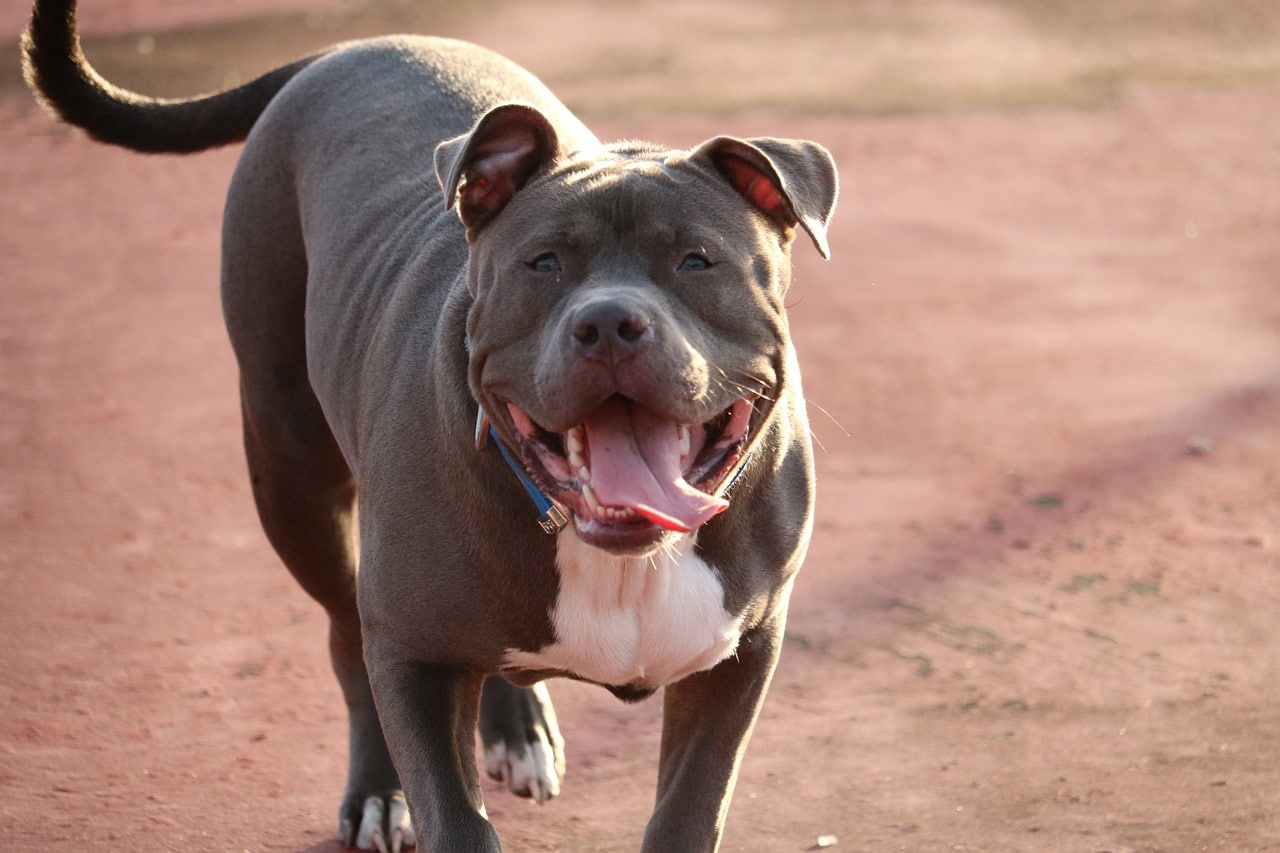 Shutterstock
Shutterstock
The history of each breed plays a large role in their behavior and characteristics. German Shepherds originated in Germany in the 19th century as herding dogs, bred for their intelligence, stamina, and loyalty. Their role as protectors of livestock has evolved into being one of the most versatile working breeds today. Pit Bulls, on the other hand, have a history rooted in bull-baiting and later as farm dogs in the United States. Despite their tough history, they have a strong reputation for being loving family pets. Understanding their backgrounds helps explain why German Shepherds excel in structured roles while Pit Bulls shine in family settings.
Health Concerns
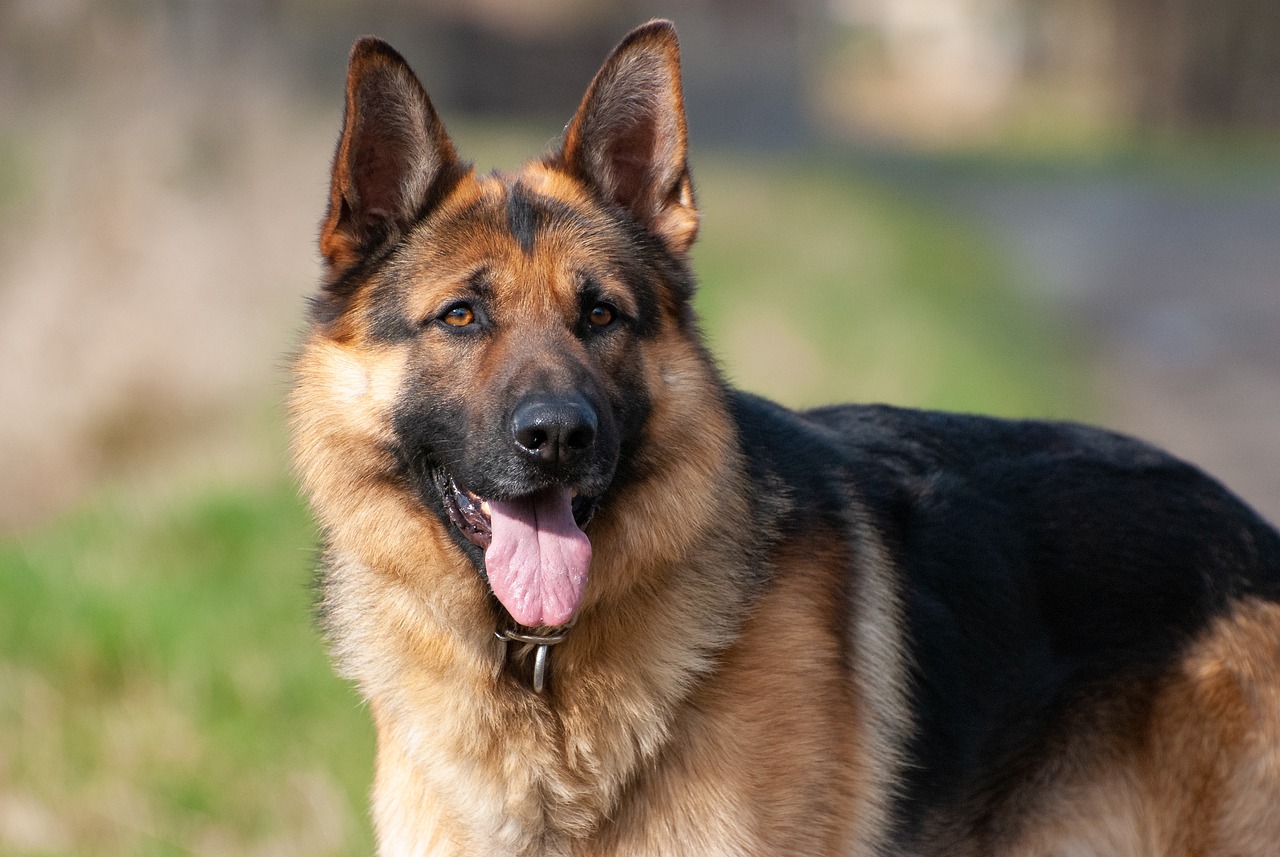 Shutterstock
Shutterstock
Both breeds are prone to specific health issues. German Shepherds are at risk for hip and elbow dysplasia due to their large size and genetic predisposition, along with conditions like degenerative myelopathy. Pit Bulls, while generally sturdy, can suffer from skin conditions, allergies, and hip dysplasia as well. They may also be more prone to certain heart conditions. Regular veterinary care and a proper diet are crucial for both breeds to maintain their health. German Shepherds may require more attention to their joints, while Pit Bulls benefit from a focus on skin health and maintaining a healthy weight.
Lifespan
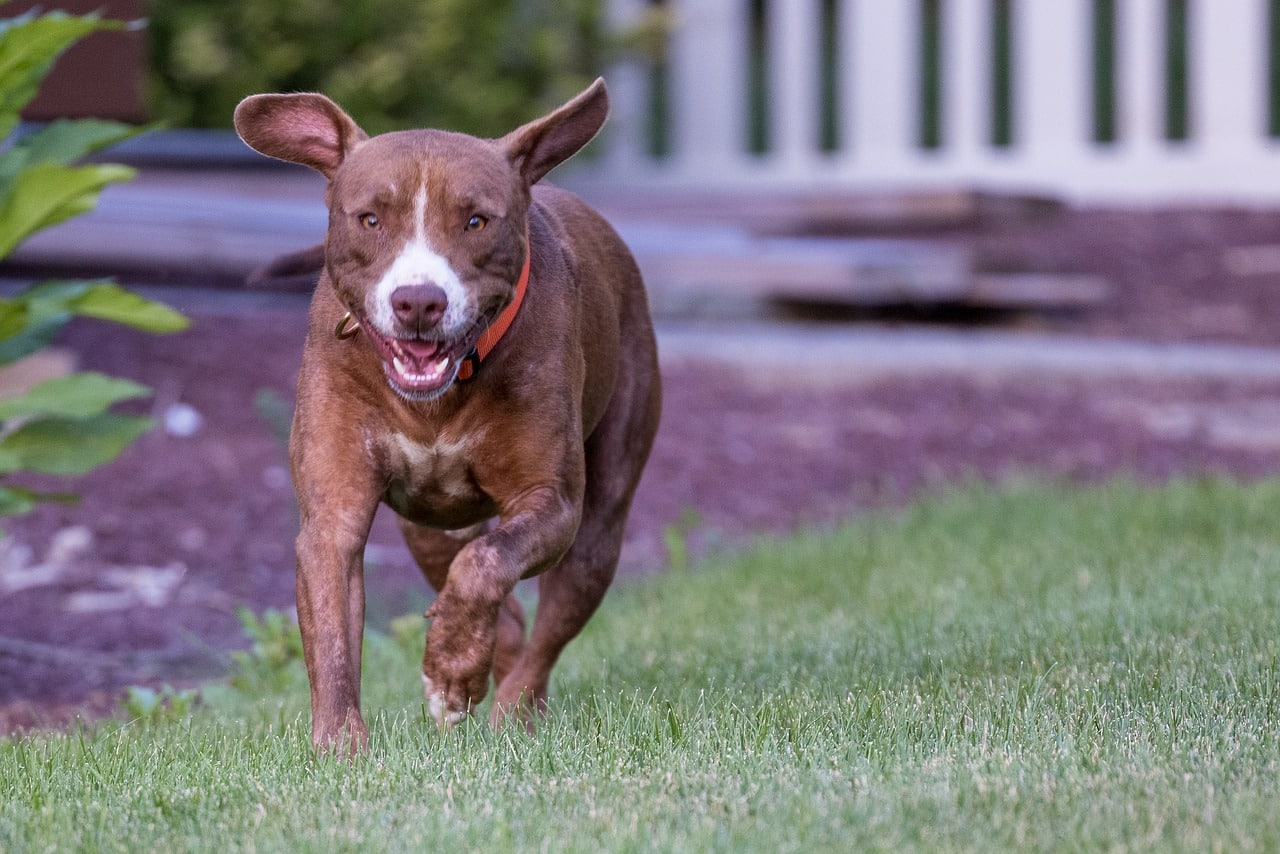 Shutterstock
Shutterstock
German Shepherds and Pit Bulls have different life expectancies, which can be an important factor for potential owners. German shepherds typically live between 9 and 13 years, with a shorter lifespan often due to genetic health conditions. Pit Bulls tend to have a slightly longer lifespan, ranging from 12 to 16 years. This longevity difference can be due to their smaller size and fewer hereditary issues compared to the German Shepherd. While both breeds can enjoy a long life with proper care, families might consider this factor when choosing which breed is best for them.
Adaptability to Climate
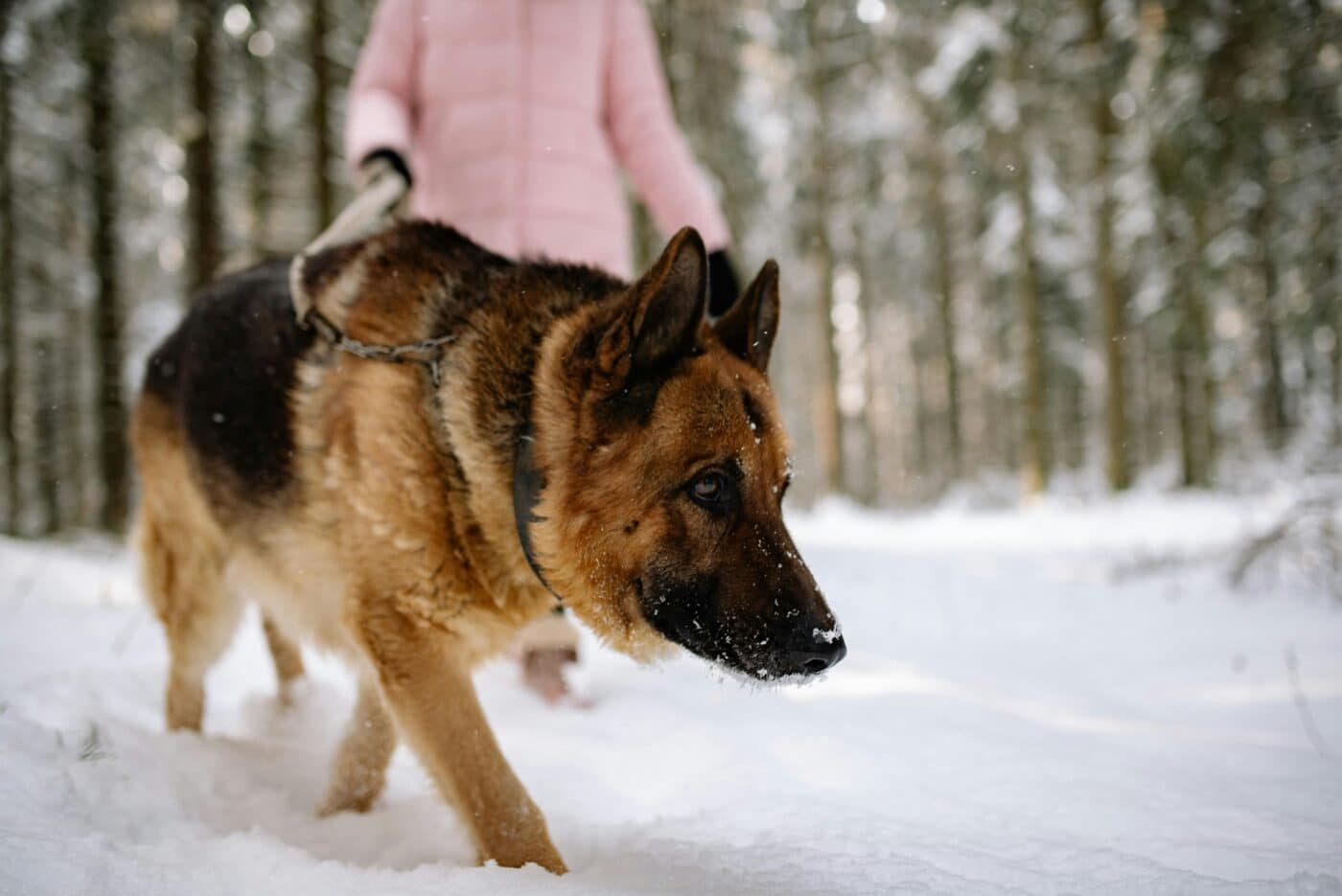 Shutterstock
Shutterstock
German Shepherds are more adaptable to colder climates due to their thick double coat, which provides insulation in winter. They can manage hot weather as well but need to be monitored for overheating. Pit Bulls, with their short coat, are better suited to warmer climates and may struggle in colder weather without the proper gear like coats and sweaters. This difference in adaptability means that German Shepherds might be the better choice for those living in colder regions, while Pit Bulls thrive in more temperate environments.
Interaction with Children
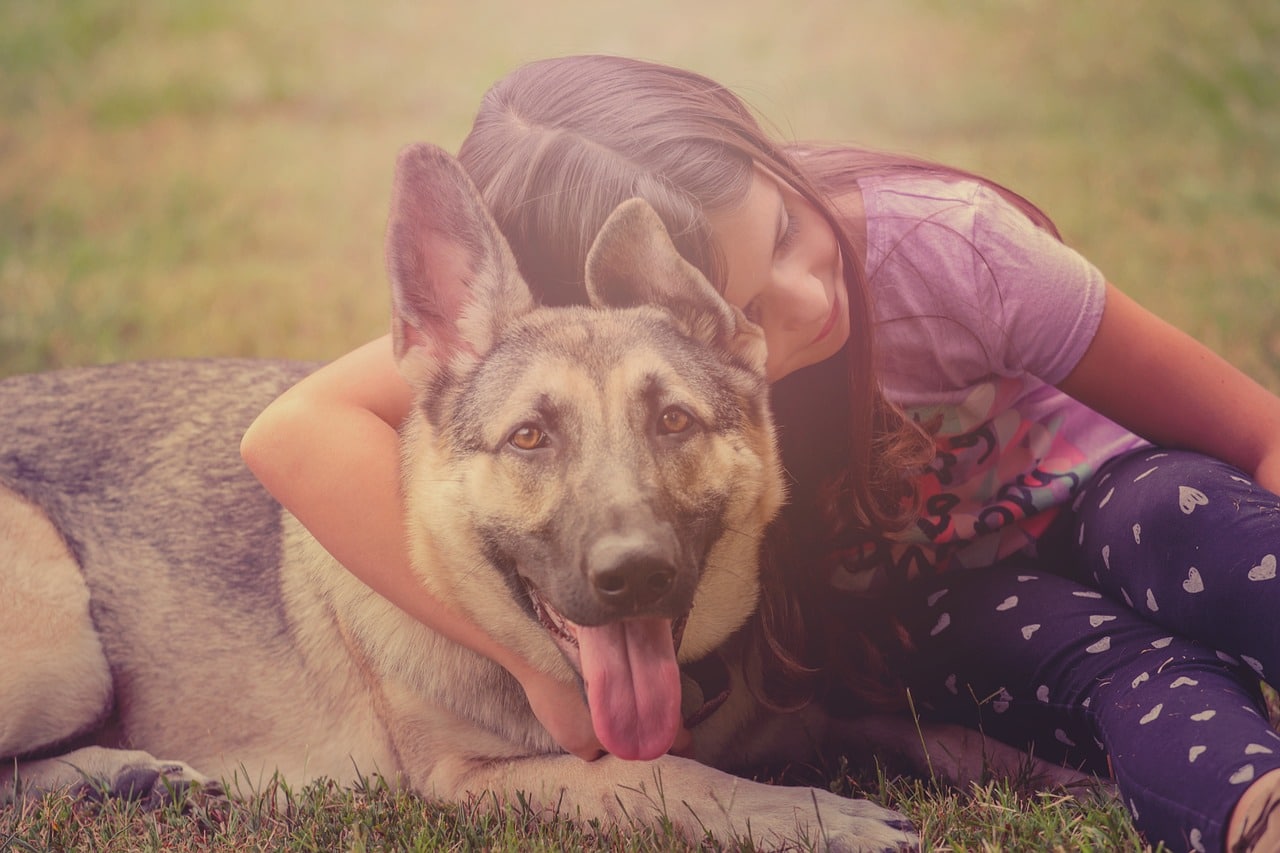 Shutterstock
Shutterstock
Both breeds can be wonderful with children, but their interactions can differ. German Shepherds, with their protective instincts, often take on a guardian role in the household, keeping a watchful eye over the kids. They are gentle but can be reserved, making them great for families looking for a vigilant protector. Pit Bulls, meanwhile, are famously affectionate with children and are often referred to as “nanny dogs” due to their loving nature. They are more likely to engage in playful activities with kids, though their exuberance means they should be supervised around very small children to prevent accidental bumps.
Strength and Bite Force
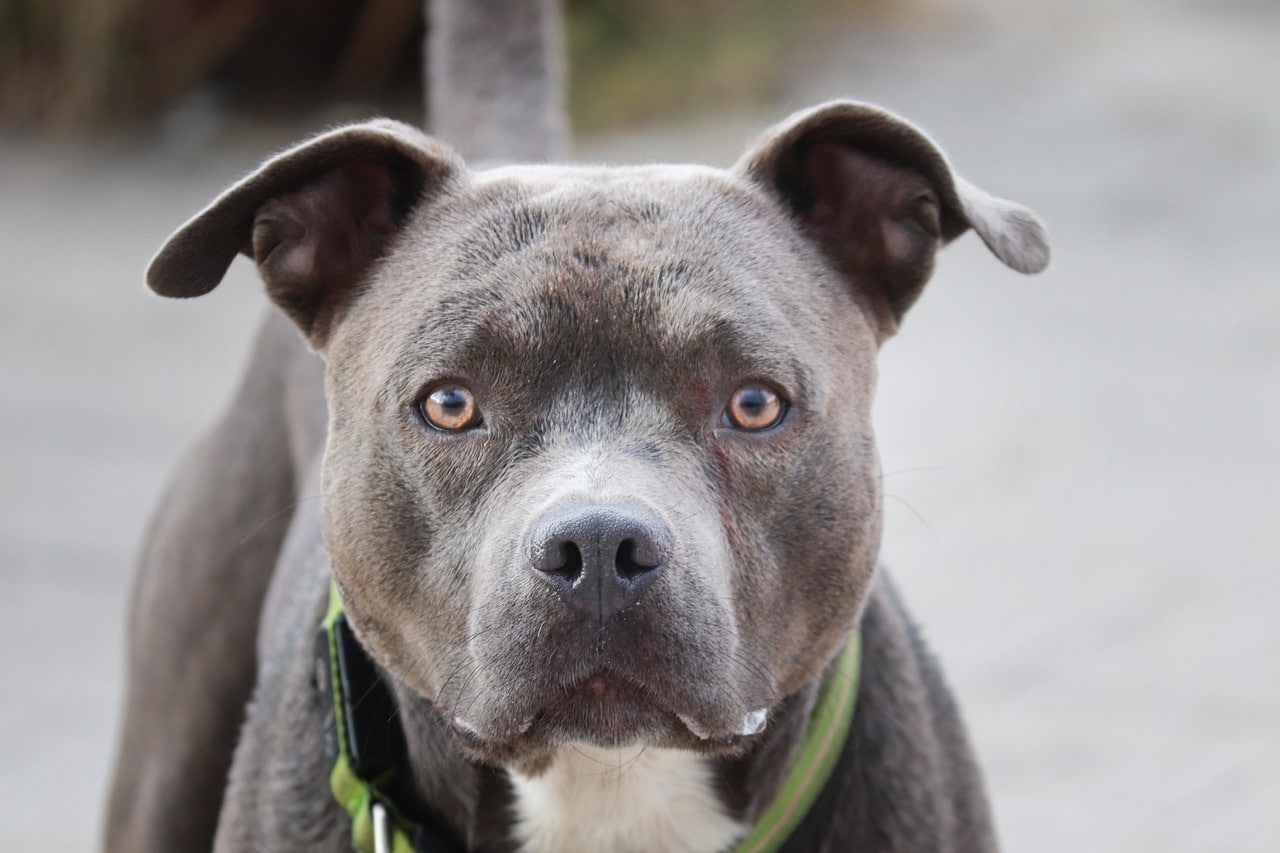 Shutterstock
Shutterstock
Both breeds are strong, but their physical power manifests differently. German Shepherds are known for their endurance and agility, making them ideal for tasks like search and rescue. They have a bite force of around 238 PSI (pounds per square inch), which is powerful but often used for work like police training. Pit Bulls, on the other hand, have a strong bite force of around 235 PSI and are known for their determination and tenacity. Their muscular build gives them physical strength, which is evident during play or when engaging in tug-of-war. Understanding these differences helps in training and managing their strength.
Loyalty
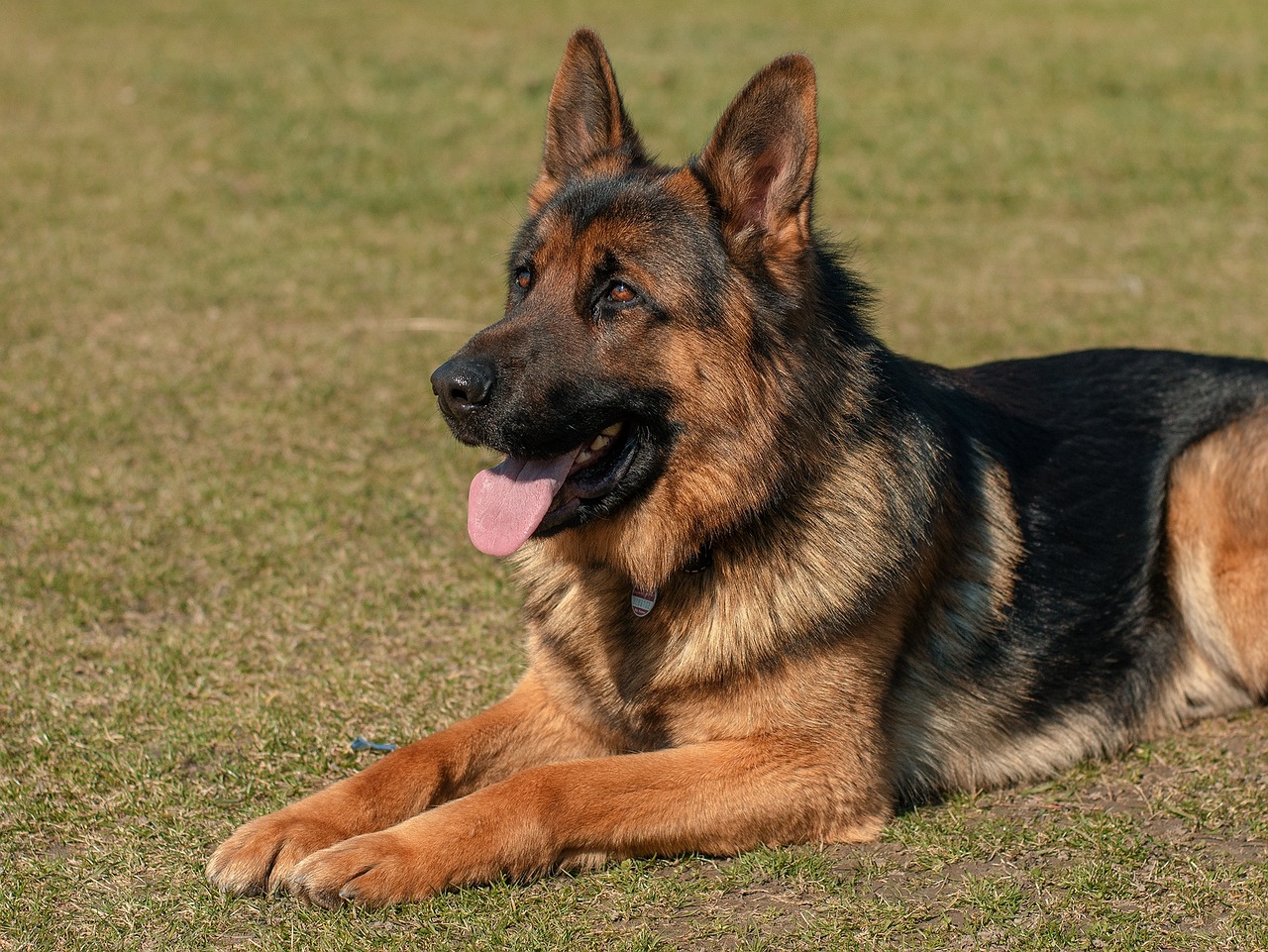 Shutterstock
Shutterstock
Both German Shepherds and Pit Bulls are extremely loyal to their families, but they express this loyalty in unique ways. German Shepherds tend to show their loyalty through their protective nature, always keeping an eye out for potential threats. This makes them ideal for families looking for a dog that doubles as a guardian. Pit Bulls, on the other hand, show loyalty through affection and an eagerness to be close to their owners, often following them from room to room. While both breeds will stick by their owners through thick and thin, the way they express it can be quite different.
Intelligence
 Shutterstock
Shutterstock
German Shepherds are widely known for their intelligence, ranking among the smartest dog breeds in the world. They are quick learners and excel in tasks that require problem-solving and advanced commands. This makes them ideal for roles in law enforcement and as service dogs. Pit Bulls are also intelligent, but their problem-solving often leans towards figuring out how to get into or out of things—think of them as canine escape artists. While Pit Bulls may be less inclined to follow a strict training regimen, their cleverness shines through in their ability to adapt to new situations.
Role in Society
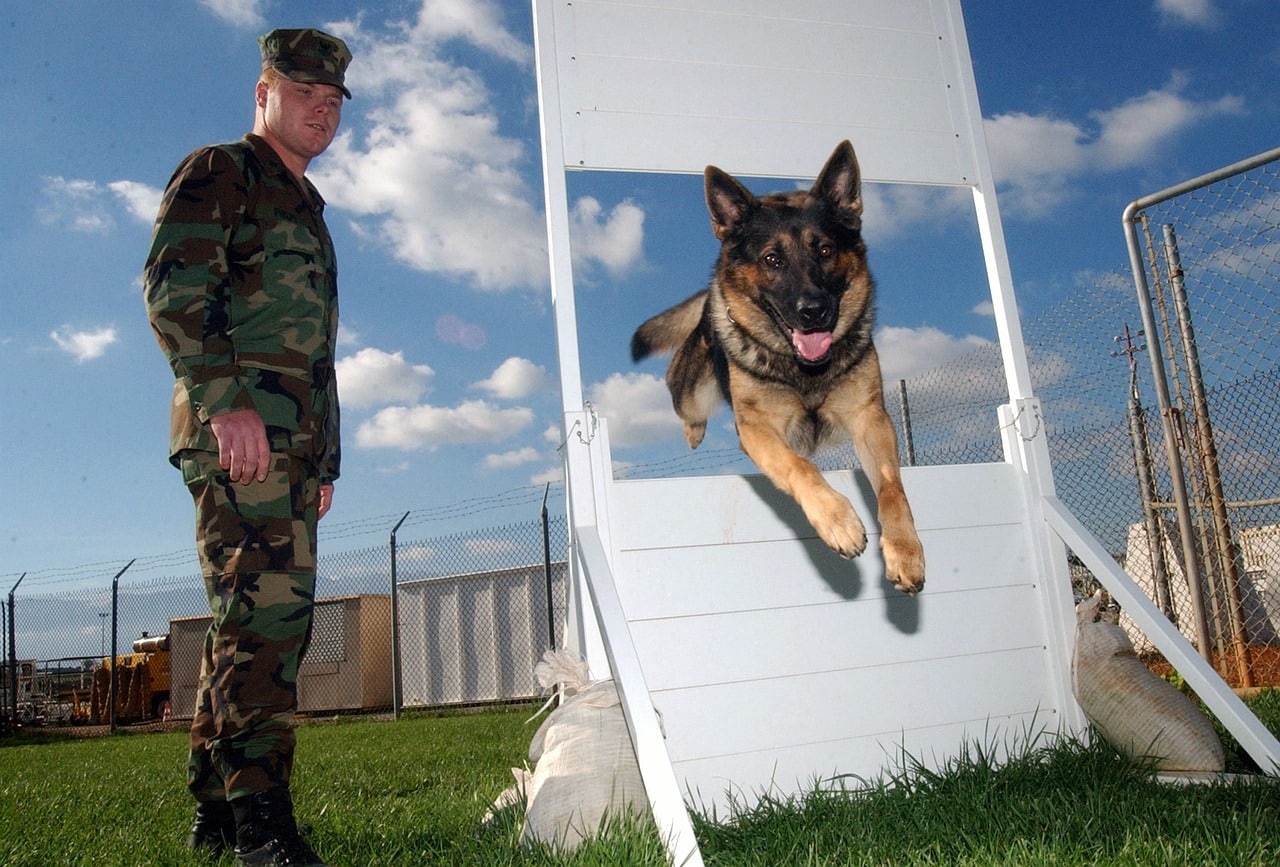 Shutterstock
Shutterstock
German Shepherds and Pit Bulls play different roles in society based on their historical and modern uses. German Shepherds are commonly seen in working roles such as police dogs, search and rescue, and service animals due to their intelligence and trainability. Pit Bulls, while sometimes misunderstood, have found a place in society as loving family pets and therapy animals, thanks to their affectionate nature. They are often involved in animal-assisted therapy programs because of their ability to connect with people. Both breeds contribute to society in meaningful ways, but their roles differ based on their natural inclinations and strengths.
The Ultimate Dog Debate
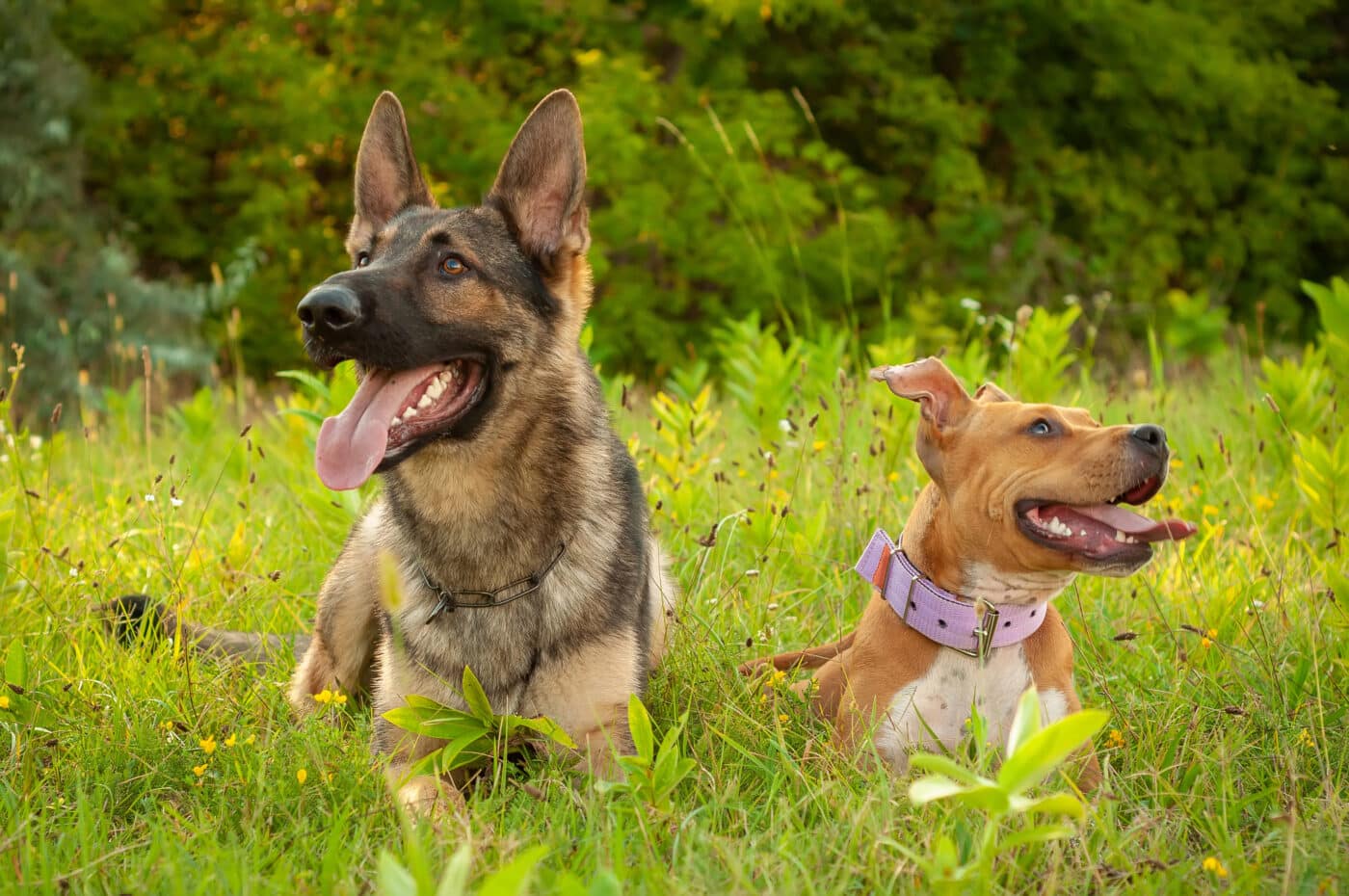 Shutterstock
Shutterstock
Choosing between a German Shepherd and a Pit Bull comes down to your lifestyle and what you’re looking for in a furry friend. If you want a serious, hard-working dog with a keen sense of duty, the German Shepherd is your go-to. But if you’re looking for a loving, playful companion who’s always up for a snuggle, the Pit Bull might win your heart. Either way, you’ll get a loyal companion who’s ready to love you—and maybe sneak in an extra belly rub or two when you’re not looking!

